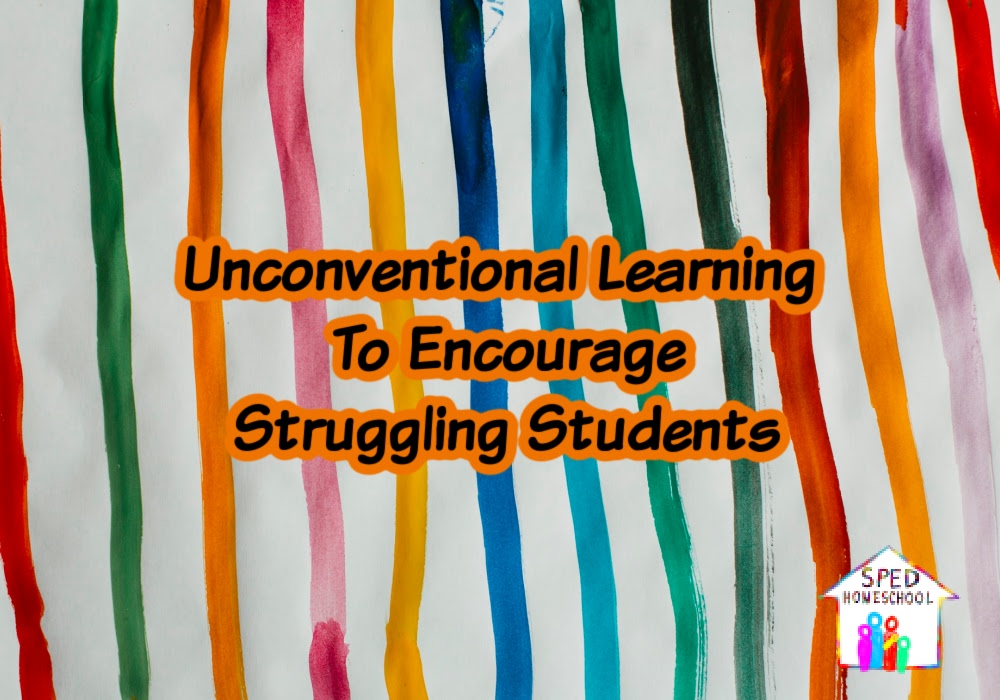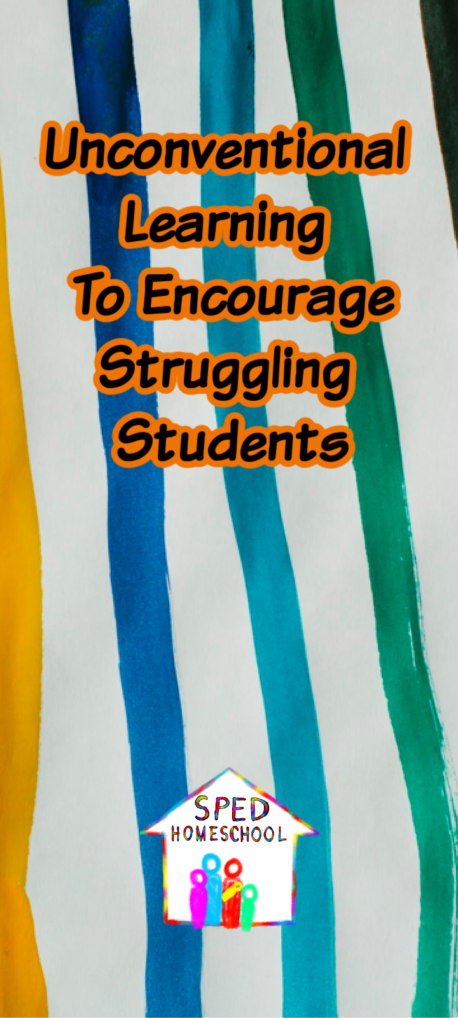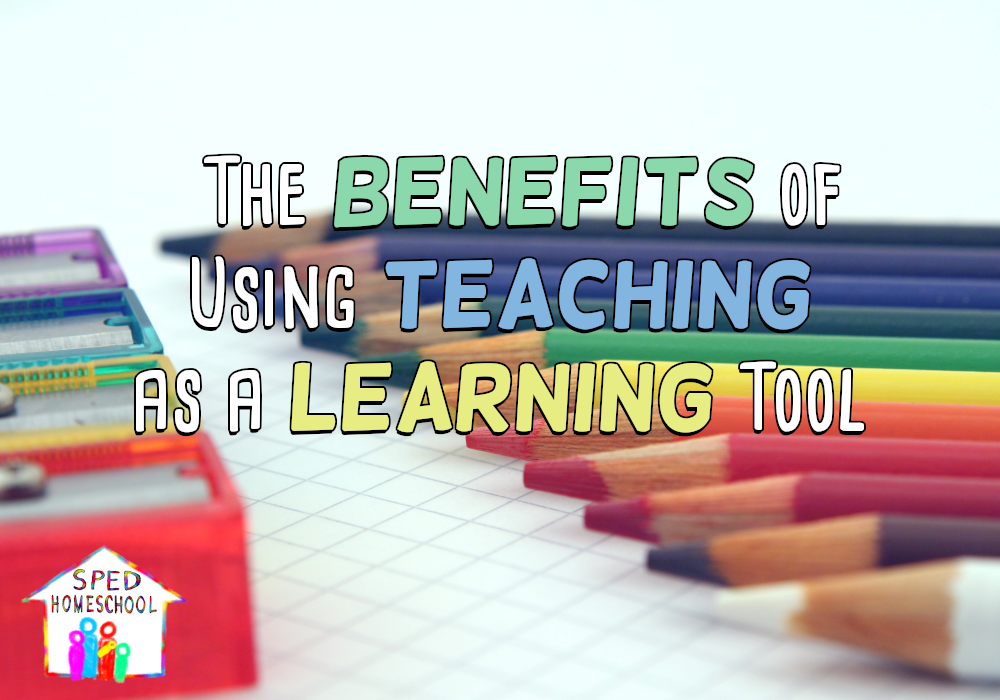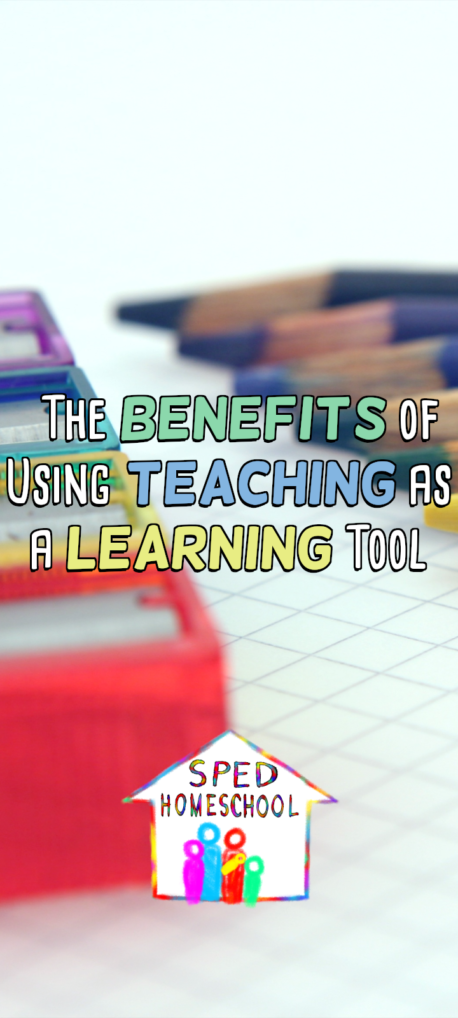
This article contains an Amazon affiliate links associated with the SPED Homeschool Mom-Care Store.
Peggy Ployhar
Do you have a student who struggles with a core subject? Maybe math, reading, or spelling? Many parents do. But many parents also try to solve the lack of progression in a core subject by focusing more heavily on that subject to “catch up.” Unfortunately, this is actually a counterproductive move.
How? I will start by sharing a scenario I have shared with many parents over the past 15 years when they told me they were not seeing progress using the tactics I described above. But, I usually start by saying, “What I will tell you will probably seem rather illogical at first, but I want you to consider this parallel first.”
Here is the parallel argument I share:
What chore or activity do you dislike doing the most? (Parents responses vary, but most say cooking, laundry, cleaning, car maintenance, or any other necessary chore that needs their attention regularly.)
For me, it would be cleaning my house. I could cook all day, but I hate to clean.
Now consider if someone were to remove all the extra activities out of your day so you had more than enough time to do that one activity you disliked?
I don’t know about you, but if someone told me all I had to do (thus all I had to look forward to) when I woke up Saturday morning was clean my house, I would sleep in as long as possible. Would you feel the same way?
Next, let’s now consider how you have removed most of the other subjects and activities in your student’s schedule to focus most of your homeschooling time on his/her “struggle” subjects. Your child feels the same way as you do about the activity you mentioned to me just a few minutes ago. Do you now understand why your child has a hard time just doing the few subjects you have left for him/her to learn?
The solution takes us in the opposite direction. We add in MORE unconventional learning.
“…consider if someone were to remove all the extra activities out of your day so you had more than enough time to do that one activity you disliked?“
We all know the concept of incentives. In training our children we often use rewards like toys, food or stickers. Those external incentives teach our children there are wonderful outcomes that come from perseverance. I am all for these tangible external incentives, but over time we want our children to move beyond external incentives to external incentives. This is where MORE unconventional learning can help your student understand the rewards of learning and using their unique giftedness.
Yes, learning can be an incentive for your student. What would that look like? Here is an example of what this looked like in our homeschool for my oldest son.
At 11 years old, my son still struggled to read. Every day we used various curriculums to keep moving forward in his progress toward learning to read independently, but I knew if we pressed in too much with just reading I would crush his spirit and he would lose his interest in learning all together. This same child loved to build. So, I incorporated his love for building into an actual school subject he would have listed in his planner each week. I didn’t know what I would use at first for this “class” until I came across a K’NEX Education set on how to reconstruct 7 real bridges. I called the class “Structural Engineering” and we spent time each week learning about these bridges and building them. Instantly, I saw a boost in my son’s self esteem. He was now seeing what I had seen for so long, that he had a knack for engineering and was a gifted learner. Now 12 years later, this same young man recently received a degree in Biomedical Engineering. Was it a surprise to me? Not at all.
As you look ahead to your homeschooling year, make sure the pressures of catching up do not crush your student’s potential. Add in MORE learning instead and show your student how despite their learning difficulties he/she is still a gifted learner.
Did you enjoy this article?
Would you consider a small donation to support the ongoing work of SPED Homeschool?
Click Here to Donate Today



